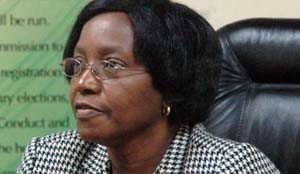By ERIC G. POSTEL –
Sometimes I can’t help but be inspired. While Africa is a place of tremendous dynamism, diversity, opportunity, and progress, Africa’s success stories don’t attract attention.
As the Assistant to the Administrator for Africa at the U.S. Agency for International Development, I have to spend a significant amount of my time dealing with problems: extreme poverty, conflict, disease, corruption.
So when I have the chance to celebrate an experience that reveals the ideals and
abilities of Africans, I want to tell that story.
A few weeks ago I had the privilege to travel to Zambia and meet with members of its Electoral Commission, led by Justice Irene Mambilima.
Following the death of President Michael Sata last October, the Commission was extremely busy, preparing for a snap presidential election within the three-month period mandated by the constitution.
When I met with Chairperson Mambilima it was clear to me that she and her fellow commissioners were as fiercely determined as Zambia’s citizens to make democracy work, and were striving tirelessly to put together a free and peaceful, nationwide election in record time.
On Election Day, we nervously watched the weather, but even pouring rains and rising flood waters did not prevent Zambians from venturing out to their polling places to exercise their right to select their new leader.
The results speak for themselves. Despite the stormy weather and an extremely close race — only 27,000 votes separated the two candidates — the Commission was able to tally the results and officially declare an uncontested winner in just four days, with few disruptions or incidents of violence.
Indeed, the election authorities were only one part of the successful process.
Thousands of nonpartisan citizen observers monitored the conduct of the elections and conducted a
sophisticated parallel vote tabulation that confirmed the official results and political party poll watchers actively defended their interests at the voting sites.
These rigorous, transparent procedures provided confidence in the democratic process.
These elections benefited from experience: Zambia has a history of hotly contested elections and peaceful transitions of power ever since President Kaunda yielded to popular demands and stepped down in 1991.
While some observers noted that there could be improvements in the future (for instance, publishing results for individual polling stations would create even greater transparency), most agreed that the elections were free, peaceful and credible. Indeed, U.S. Assistant Secretary of
State for Africa Linda Thomas-Greenfield noted, “Zambia is a model of how to conduct elections and how to manage democracy.”
Zambia made the process look relatively easy, but elections are, in fact, a complex undertaking.
The process begins long before election day and endures well beyond the moment the last ballot is counted.
USAID is already working with election officials, political parties, and civic activists to prepare for upcoming polls in several other countries, including Burundi, the Central African Republic, the Democratic Republic of Congo, Nigeria, and Uganda.
In each case, citizens are eager to exercise their right to vote.
However, in many aspiring democracies, candidates who are unwilling or afraid to compete on a level playing field can take advantage of weak institutions to stoke violence, manipulate the rules of the game, or use fraudulent tactics to distort the popular vote.
Yet I believe the balance is slowly tipping in favor of democracy.
A few decades ago, many African politicians and their supporters blamed the United States and other Western democracies for imposing unrealistic standards on their governments and political systems. But today, African citizens point to the examples of countries like Zambia, Ghana, Benin, Namibia and other electoral successes across the continent to claim democracy as an effective model for Africa.
Indeed, by running a sound and effective electoral process and by casting their votes, Zambians are continuing to demonstrate that elections and political processes that derives from the will of the people to select their own leaders and peaceful transfer of power among opposing parties represent an appropriate African standard.
In 21st-century Africa, the liberation heroes who dominated the first generation or two of post-independence Africa, are increasingly giving way to a new generation of leaders. I look forward to the day when Zambia’s record of regular, peaceful, transfers of power is not the exception for Africa, but the norm.
The Author is Assistant to the United States Agency for International Development(USAID) Administrator for Africa.







